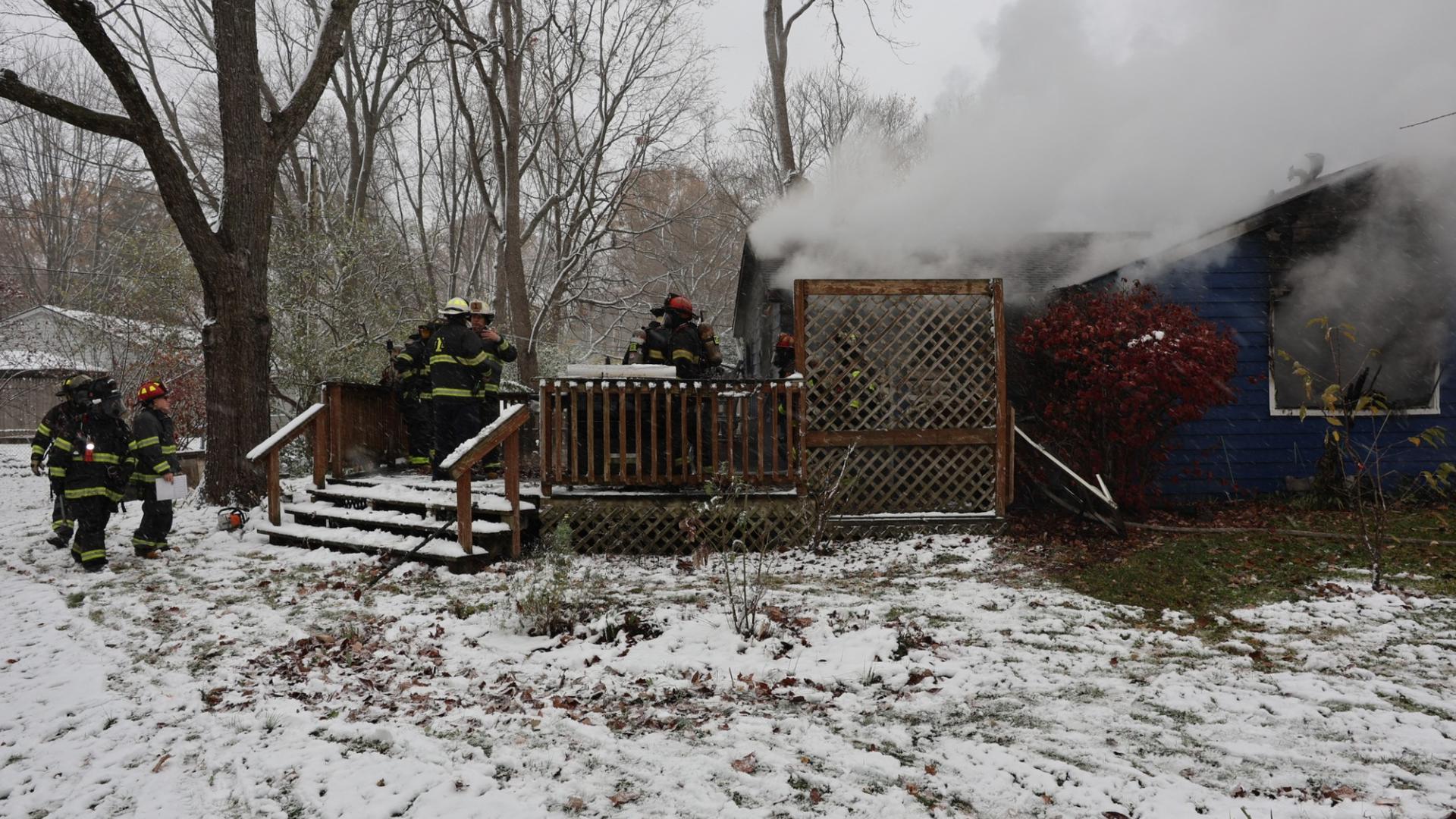INDIANAPOLIS - Angie Dickerson recalls a long, sleepless night at her family's Jamestown home that literally began with a bang.
"I heard this pop, very loud pop, and next thing the smoke detector starts going off. I knew immediately something was wrong," she said.
After searching the house, Dickerson eventually traced the loud noise and source of the smoke to something inside her smoke detector.
"I opened it up and found pieces that came off the battery and realized it exploded," she said, pointing to a damaged 9-volt battery sitting on her kitchen table. "It was hot -- very hot -- and it was very obvious the minute I opened it up. I realized it blew out the back and one of the cells was open so I knew immediately it exploded."
Dickerson called 13 Investigates to share her story -- and we quickly discovered she is not alone.
Explosions heard around the world
The internet is full of photographs and video from people who've experienced the same thing: popular alkaline batteries exploding in remote controls, smoke alarms, flashlights, computer mouses and other household gadgets.
"This wireless mouse with two Duracell batteries blew up in my hand, scared the crap out of me," says one Youtube user, showing video of his damaged computer equipment.
And on internet message boards, consumers worldwide describe the same "loud pop," "bang," "hiss," or "sizzling noise" that comes with an exploded alkaline battery. Whether they are 9-volt, AA, AAA, C or D size batteries, all are capable of exploding. Few consumers are aware of that potential – despite fine print on the side of the batteries warning about the risk of explosion. When it happens, it can be downright dangerous.
"There is a cylinder that comes flying out … like a bullet and they blow up like a firecracker in your face," said Judi Schwalbach after she and her husband were injured by an exploding C battery in their Michigan home.
Dave Schwalbach had just removed the battery from a speaker when it blew up, spraying debris and acid into his face and eyes.
"It literally blew up in our face," Judi explained a few days after the incident.
Like a miniature "bomb"
So what causes a battery to just blow up?
Dr. Mike Mueller, chemistry department head at Rose-Hulman Institute of Technology, believes the problem occurs when alkaline batteries are exposed to an electrical current.
"You end up forming hydrogen gas and you're forming hydrogen gas in a sealed metal container," Mueller explained. "Any time you generate gas in a sealed metal container, that's called a bomb, and that's literally what happens. The pressure will build up until the casing bursts, and then the highly corrosive material will leak out and can be quite a mess."
That's why most alkaline batteries have warnings – albeit tiny ones – telling consumers they could explode. Those warnings instruct not to insert an alkaline battery the wrong direction, expose it to high heat, or charge a non-rechargeable battery. All of those mistakes can prompt explosion.
But Dickerson insists she didn't do any of those things to cause her battery to explode. (She used a battery specifically recommended by the smoke alarm manufacturer.) And other consumers say their batteries also blew up during normal, proper use.
Dr Mueller says, somehow, those batteries were likely exposed to energy, which prompted them to explode.
"Anytime I would apply any type of voltage to the battery, I take a chance of producing the [hydrogen] gas and, as a result, the battery exploding," he said.
Safety record
But the longtime chemist says alkaline batteries -- sold in their current form since 1949 – have a good safety record.
"They are very reliable and relatively safe," said Mueller. "You just have to take precautions."
Battery manufacturers agree. Duracell says explosions are very rare, but the company admits they can happen.
"With any battery that's a possibility because contents are under pressure," said Duracell spokesman Kurt Iverson. "We sell millions of batteries. A lot of things happen."
After what happened to Angie Dickerson, she says she'll never look at batteries the same way again.
"I had no clue batteries could explode," Dickerson said. "It makes me respect a battery a great deal more."
Taking precautions
To help reduce the chances of a battery explosion, safety experts recommend:
--Never handle a very hot battery. Wait for it to cool.
--Remove alkaline batteries from any device you won't be using for several months.
--Do not mix old and new batteries – or batteries of different brands – in the same device.
--Keep batteries away from high heat and fire.
--Make sure batteries are not inserted backwards.
--Never attempt to re-charge batteries that are non-rechargeable
Tips from Duracell:
1. Don't store batteries in the refrigerator or freezer. Batteries are best kept in a dry place at normal room temperature. Prolonged exposure to extreme heat or cold can reduce battery life and/or quality. Allowing cold batteries to slowly warm up to normal room temperature (10C-25C) should restore normal operation.
2. Be prepared with spare batteries for important occasions. Do you really want to miss a once-in-a-lifetime photo opportunity because you don't have spare batteries for your camera? Buy batteries with the longest freshness date available, and use those on hand with the closest freshness date first.
3. Replace all your device's batteries at the same time. Mixing old and new batteries, or batteries of different types or brands, in a device can lead to battery leakage and device damage.
4. Be sure to align your battery's positive (+) and negative (-) terminals correctly when inserting them into a device. Some devices may appear to work properly if one battery is inserted incorrectly, but this can lead to battery leakage or rupture.
5. Remove batteries from a device when it is not expected to be in use for several months. Batteries should also be removed from equipment while it is being powered by household (AC) current.
6. Always replace the battery or batteries in your equipment with the size and type of battery specified by the equipment manufacturer. Using the wrong type or size could cause malfunction or equipment damage.
7. Do not store batteries loosely or carry them loose in your pocket or purse. They can be shorted by contact with metal objects and leak or rupture.
8. Primary batteries should be discarded with your regular household trash. Never dispose of batteries in fire.
9. Never attempt to recharge a battery unless the battery specifically is marked "rechargeable."
10. Keep battery contact surfaces and battery compartment contacts clean by rubbing them with a clean pencil eraser or a clean cloth each time you replace batteries.



